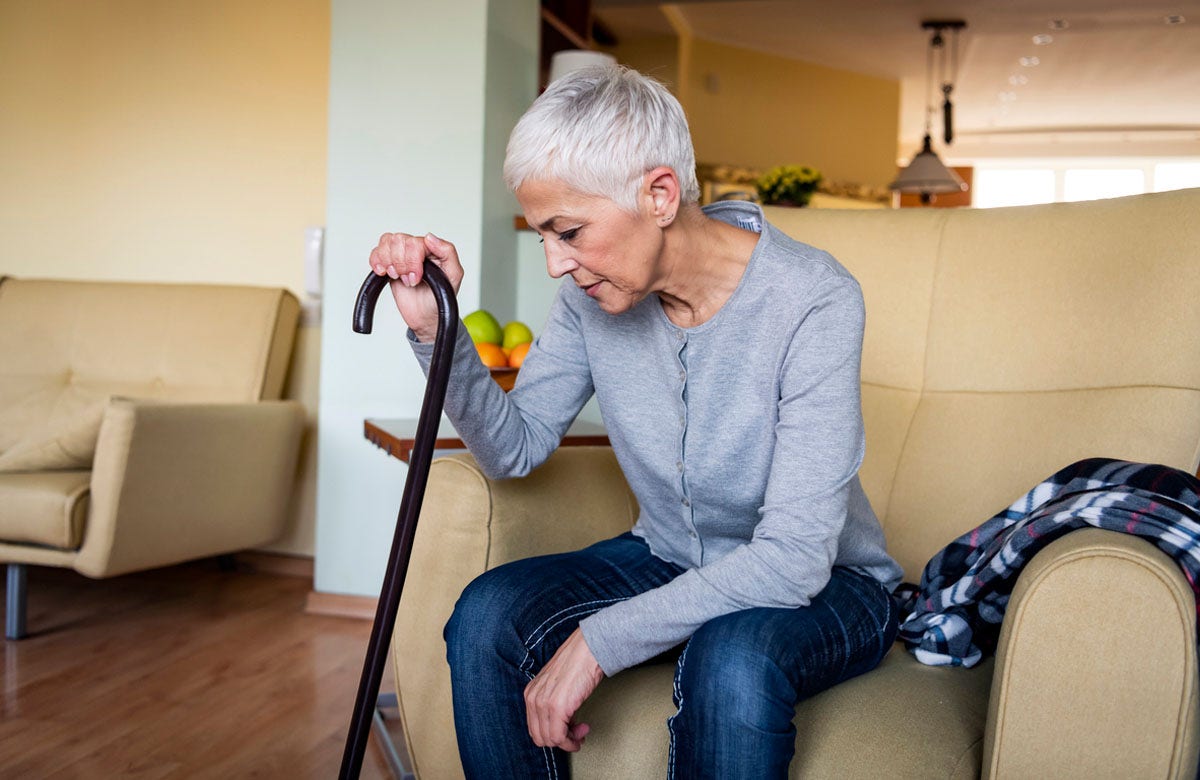A study has found that older adults who experience this type of injury may have a higher risk of developing dementia.
A 'diagnostic pattern' has been discovered by researchers that typically precedes a dementia diagnosis.

In older adults, a fall resulting in injury may be an early indication of dementia.
A recent study published in JAMA Network Open found that.
According to a study, geriatricians and primary care providers have long recognized a pattern where falls often precede a dementia diagnosis. As such, older adults who experience a fall should undergo cognitive screening, as advised by co-author Molly P. Jarman, PhD., deputy director of the Center for Surgery and Public Health at Brigham and Women’s Hospital and assistant professor of surgery at Harvard Medical School.
Medicare claims data for over two million elderly Americans with traumatic injuries was analyzed by Boston researchers from 2014 to 2015.
Half of the injuries were the result of falls.

The researchers tracked the frequency of dementia diagnoses among participants for at least one year following the injury, in addition to reviewing follow-up data.
Falls are the leading cause of injury for adults 65 years and older.
A year after experiencing a fall, 10.6% of patients were diagnosed with dementia.
Additionally, the research examined information from elderly individuals who sustained injuries from sources other than falls, including motor vehicle accidents.
Jarman observed that only 6.1% of older adults with other types of injury were subsequently diagnosed with dementia.
Patients with fall-related injuries were 20% more likely to be diagnosed with dementia than those with other types of injury, after accounting for variables such as demographics and underlying medical issues.
Do falls cause dementia?
According to past research, approximately 10% of U.S. adults aged 65 and above have dementia.
The study's main limitation is that it only examined past records, making it uncertain whether falls cause dementia or if older adults at risk for dementia are more likely to fall, according to the researchers.

According to Jarman, older adults with mild cognitive impairment or undiagnosed dementia may be more likely to experience a fall due to changes in their gait and balance.
"Their dementia diagnosis results from increased interaction with the health care system due to the fall."
"When we hear chest pain, we think heart attack — and when we hear falling, we should be thinking dementia risk."
According to Michael S. Okun, M.D., a medical advisor to the Parkinson’s Foundation and director of the Fixel Institute for Neurological Diseases at the University of Florida Health, falling in older adults could be a potential warning symptom.
He was not part of the study.
As Okun stated to Planet Chronicle Digital, when we experience chest pain, we immediately associate it with a heart attack, and similarly, when we hear someone falling, we should consider the risk of dementia.
"It is advisable to promptly assess cognitive abilities when experiencing new onset falling."
Shifting the paradigm
According to Jarman, it is not standard practice to conduct cognitive screening for older adults who have fallen.
She stated that the results of their study aim to motivate clinicians to assess the cognitive well-being of elderly individuals who experience falls.

During the initial hospitalization after a fall, clinicians could begin screening, and a follow-up screening could be performed by the patient's primary care physician or a geriatrician.
Okun stated that the belief that an elderly person only requires physical therapy following a fall is incorrect.
"It is important to educate people on the importance of assessing brain function in those who have fallen."
4 steps to preventing falls
According to the Centers for Disease Control and Prevention (CDC), injuries from falls are the most common among adults aged 65 and above.
Every day, an older adult falls approximately once, and one in four reports falling annually, according to the same source.
Older adults are at risk of severe and potentially fatal injuries from falls, as warned by Jarman.

"Patients who fall are at a high risk of losing independence."
The likelihood of a fall increases with the number of risk factors present, according to the CDC.
The agency recommends four practices to prevent falls.
1. Review your risk
The CDC advises having an open and truthful conversation with your healthcare provider regarding your individual risk of falls.
Ensure that all medications are reviewed to avoid any potential side effects of dizziness or sleepiness.
2. Keep moving
Engaging in regular exercise, like Tai Chi, can enhance your balance and fortify your leg muscles, thereby lowering your likelihood of falling.
Experts recommend asking your doctor which regimen is best for you.
3. Seek medical attention
It is advised by the CDC to have annual eye and foot exams and to discuss with your healthcare provider about appropriate footwear.

Undiagnosed vision problems, such as glaucoma or cataracts, can increase the risk of falling, according to the same source.
4. Do a home inspection
To ensure your home's safety, the agency advises conducting an inspection.
To prevent rugs from slipping, use double-sided tape. Keep items in cabinets that can be easily reached without a step stool. Install grab bars next to and inside tubs. Place non-slip mats on shower floors.
For more Health articles, visit planetchronicle.net/health
The CDC advised that people should use nightlights to guide them to the bathroom and ensure that their entire home has adequate lighting.
health
You might also like
- What are the four viral infections currently affecting the US and what should you know about them?
- Doctors hail a 'New golden age' with Trump and a healthier America.
- Researchers suggest a more accurate way to measure obesity than BMI.
- Ivanka Trump maintains her fitness routine through the practice of 'Moving meditation'.
- To detect more bird flu cases, the CDC advises quicker 'subtyping'.



















